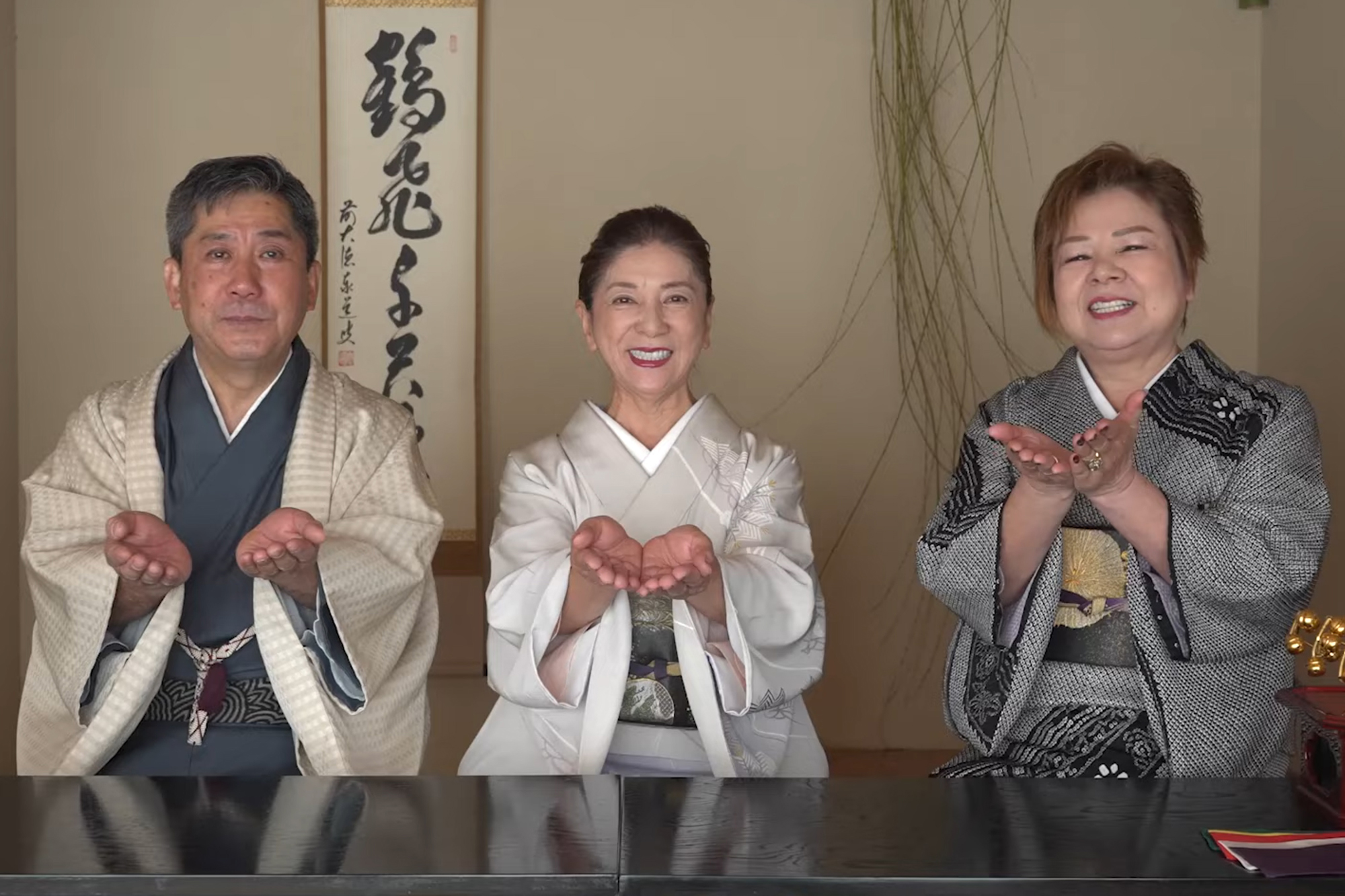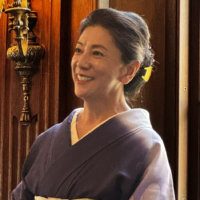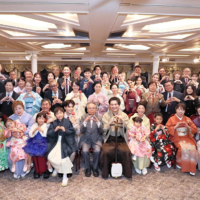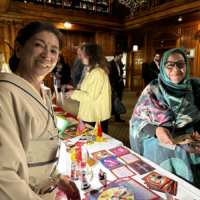Last year, three friends in their mid-60s started Ruriko Co., not with products or services to sell, but with a mission to preserve and demonstrate the Japanese culture and lifestyle they grew up with during the postwar reconstruction era when people’s bonds were thought to be stronger.
In a recent interview with The Japan Times, President Ruriko Sakuraba and Director Ritsuko Kaneko spoke about how and why they founded the company, and what they hope to accomplish by providing opportunities to experience authentic Japanese culture.
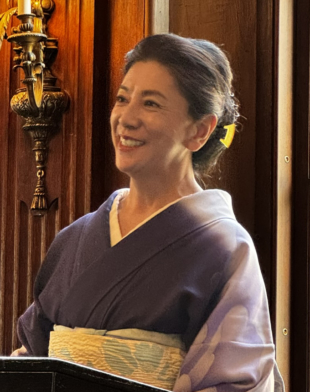
Sakuraba has been a lifelong practitioner of traditional Japanese culture, including calligraphy, flower arrangement, tea ceremony, cooking, sewing and tanka and haiku poetry. For the past 30 years, she has also been conducting tours of Japan, especially to areas related to the “Kojiki,” the oldest surviving record of ancient Japanese history and myths. One of the main destinations of her tours is Miyazaki Prefecture, where she was born and where many of the stories and myths in the “Kojiki” are said to have taken place.
Kaneko, one of the company’s two directors, has lived in various parts of Japan and abroad since her marriage, as her husband’s job frequently required them to move. This experience of constantly immersing herself in different cultures fostered her passion for exploring her own roots and culture, which led to the formation of the Konohana Club, a regular gathering that features guest speakers, performers and practitioners who specialize in various aspects of Japanese culture and arts.
Michiichiro Ito, the second director, is a dental surgeon and implant specialist who was born in Kumamoto Prefecture and studied in Nagasaki Prefecture. In addition to running his dental clinic in Tokyo, he has made efforts to contribute to community service through the Rotary Club, serving as president of one of its branches in 2023.
Bound by common outlook
Although they grew up in different parts of Japan and have led very different lives, all three were all born in 1958 and shared similar childhood experiences based on warm relationships, a spirit of helping others, and a sense of appreciation for everything and everyone around them.
When Sakuraba met Kaneko and Ito for the first time several years ago, she realized that the three of them had a similar idea.
“In this time of great change, when various incidents are taking place, we think that the most important thing is to sympathize with others, to care for others and to cherish everything in life,” she said, explaining that this is an underlying concept of various aspects of Japanese culture.
They also agreed that now was the time to take action.
“If we had tried to do it when we were younger, we would not have been convincing enough because of our lack of life experience. We felt the need to act now to make a difference in the next few decades as we gradually approach the end of our lives.”
So, at the age of 66, the trio decided to start a company together. Now they are beginning to realize how much more they can accomplish by working together rather than individually.
Cultural mission
The company took over the Konohana Club, an event Kaneko started five years ago to learn about traditional Japanese customs so they can be preserved and passed on to future generations. The club has since been renamed Manmaru Club Sun-sun Kai, with manmaru (ball or circle) representing the accepting atmosphere of the club, and sun-sun (brightly shining sun) playing on the English pronounciation of sun.
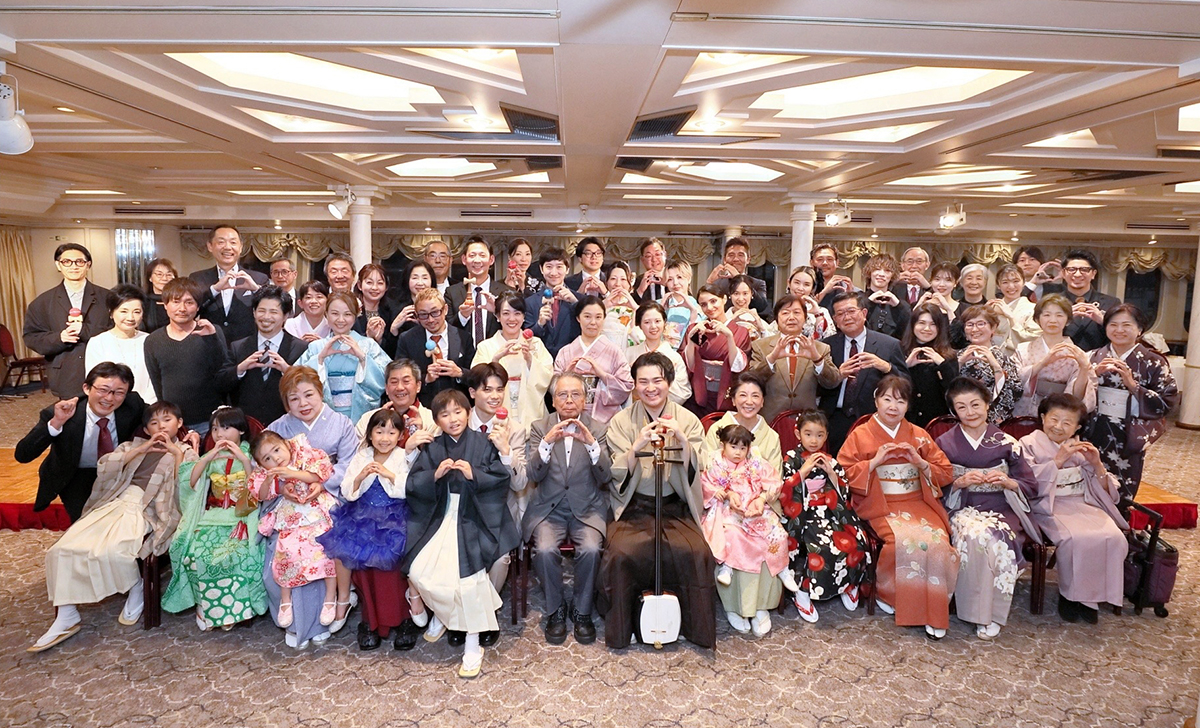
The club meets bimonthly and features performances such as wadaiko (traditional drumming) and classic Japanese dance, as well as tea ceremony demonstrations and lectures by art and culture experts.
One of the few rules of the gathering is to wear a kimono.
“It is not about how you want to look or showing off how beautiful or expensive your kimono is. We ask participants to wear kimono to express their readiness to truly appreciate what these specialists have worked so hard to prepare just for this one occasion,” Sakuraba said.
“Another rule is that we do not exchange business cards at these meetings,” Kaneko said, emphasizing that merely exchanging pieces of paper does not count as relationship-building.
“Building relationships with new people is by nature a laborious process. It is the care and respect we put into this process that makes rich and long-lasting relationships,” she explained.
She also pointed out that a network of people based on this kind of relationship can expand with stability and security because “each member of the group feels responsible for the people they invite into the group, and each new member wants to be sure that their behavior will not dishonor the person who brought them into the group.”
The company also offers guided tours to various places in Japan to learn about each region’s history while experiencing different cultures and delicacies.
Last year, the company also hosted events and performances in New York, Saudi Arabia and Monaco. “Participants enjoyed activities such as Bon odori (dance), origami and kamifusen (paper balloons). This year, we plan to offer more opportunities for foreigners to experience Japanese culture, including cherry blossom tours, yakatabune (pleasure boat) tours and going out in kimono.’’
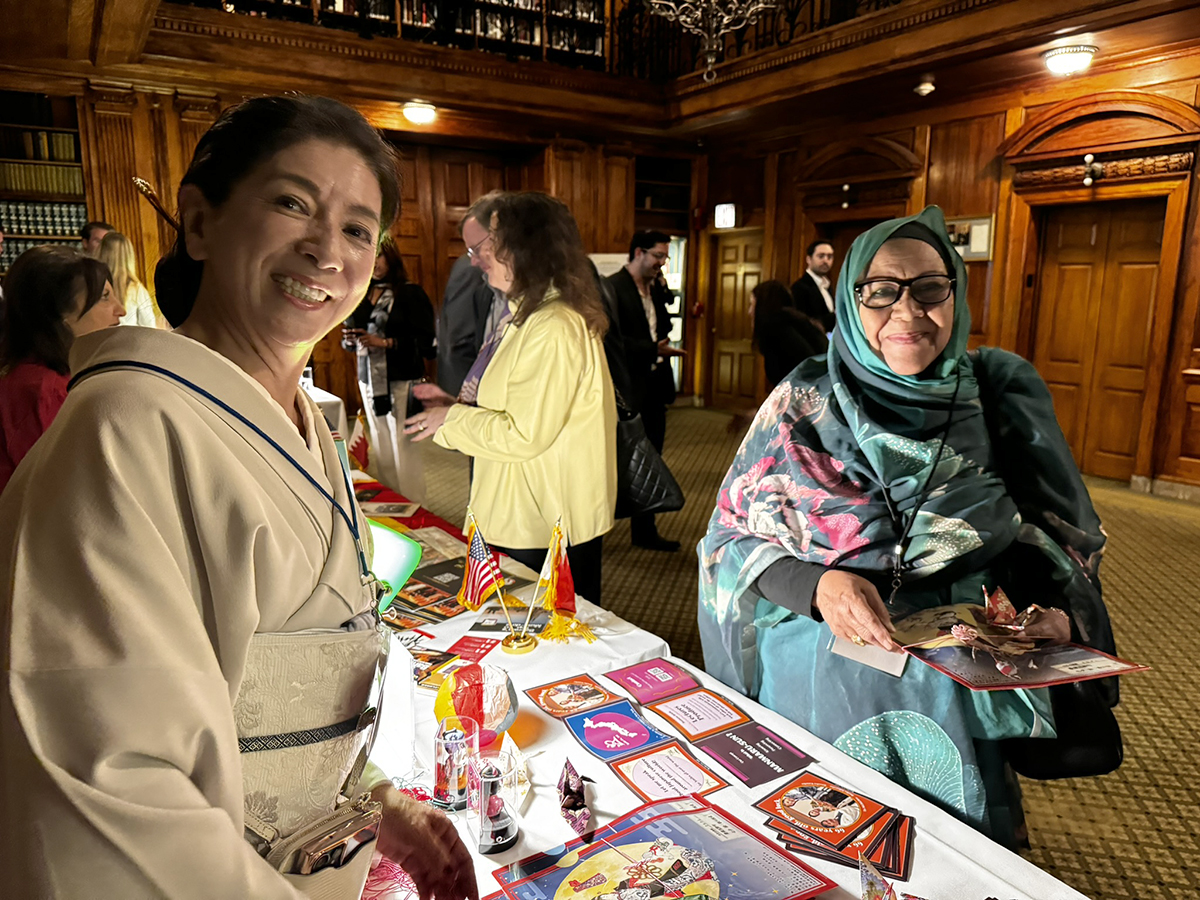
All of the company’s projects are based on the concept of exchanging “manmarusun” with others. Sakuraba described this concept in a TEDx talk as the spirit of helping and thanking each other. The word is a portmanteau of manmaru and sun, creating an image of warmth, fullness, richness, smoothness and brightness.
Sakuraba and her cofounders believe this spirit, which is at the heart of many of the traditions they look to promote, should spread globally to help build genuine and lasting relationships. They also believe that traditional Japanese attire be preserved for future generations. To accomplish this, Sakuraba plans to lecture on various topics, focusing on authentic traditional clothing, distinct from vintage or recycled clothing, with an eye toward compiling a book on these activities.
For more information, please visit https://ruriko.co.jp/



